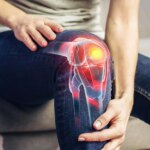- Understanding Menopause: A Physiological Change
- Common Misconceptions Surrounding Menopause
- Nutrition’s Role in Managing Menopausal Symptoms
- The Connection Between Insulin Sensitivity and Menopause
- Practical Tips for Navigating Life Post-Menopause
Menopause is a significant phase in a woman’s life, marking the end of reproductive capability and bringing various physiological changes. The narratives surrounding menopause can often be misinformed, leading to a lack of understanding among those experiencing it. Common misconceptions can lead women to view this natural transition in an overly negative light, impacting their mental health and overall quality of life.
During menopause, women experience fluctuations in hormone levels, particularly estrogen, which plays a crucial role in various bodily functions. The decrease in estrogen can lead to symptoms such as hot flashes, mood swings, and changes in metabolism. Understanding the nature of these changes is vital for those going through menopause. By recognizing that this is a natural transition rather than a failure or decline, women can approach menopause with a balanced perspective.
A prevalent myth is that menopause signals the beginning of inevitable weight gain. While it is true that hormonal changes can influence weight, lifestyle factors, including diet and physical activity, play a significant role. A well-balanced diet helps in managing weight during this transition. Focusing on nutrient-dense foods can mitigate some of the unwanted effects associated with hormonal fluctuations.
Nutrition is key during menopause. A diet rich in whole grains, healthy fats, lean proteins, and a variety of fruits and vegetables can support overall health. Caloric needs may shift during this time, making it essential to be mindful of food choices. Foods rich in phytoestrogens, such as soy products, can help ease some menopausal symptoms. Similarly, incorporating omega-3 fatty acids, found in fatty fish, nuts, and seeds, has shown potential in reducing inflammation and promoting heart health.
Insulin sensitivity is another critical aspect to consider during menopause. Fluctuating hormone levels can impact how insulin works in the body. Insulin sensitivity refers to how effectively the body responds to this hormone. Increased insulin resistance can lead to weight gain and metabolic disturbances. By emphasizing a balanced dietary approach, incorporating fiber and whole foods, women can support insulin sensitivity. Regular physical activity can further enhance metabolic health and counteract some of the challenges associated with this transitional phase.
Amidst these dietary and lifestyle adjustments, mental well-being is crucial. Stress management techniques such as yoga, meditation, or simple breathing exercises can offer significant benefits. Connecting with supportive communities also serves as a valuable resource. Engaging in group activities can foster a sense of belonging and offer shared experiences.
While navigating life post-menopause can present challenges, practical tips can empower women. Scheduling regular check-ups with healthcare professionals ensures that any emerging health issues can be addressed early. Being proactive about bone health is essential, as estrogen plays a protective role in maintaining bone density. Diet and exercise can help maintain strong bones, reducing the risk of osteoporosis.
Regular health screenings, including mammograms and cholesterol checks, continue to be vital. Understanding body signals and changes is essential for overall health management. As women transition through menopause, staying informed fosters personal health advocacy.
Engaging in this journey with confidence allows women to embrace a new phase of life rather than view menopause solely as a collection of symptoms. By fostering a clear understanding of the metabolic changes and nutritional needs during this time, women can take active steps to ensure health and well-being.
Maintaining a proactive attitude towards menopause can transform the experience. It’s essential to filter through the noise of misinformation and focus on evidence-based recommendations for managing this natural transition. By adopting a holistic approach that respects individual experiences and challenges, women can navigate the path through menopause with clarity and a sense of empowerment.
*****
Source Description
If menopause is caused by low estrogen, wouldn’t taking more estrogen address menopause symptoms? There’s more to it. Uncover the truth and learn how to address your menopause signs and symptoms naturally and effectively!
Watch these videos on Healthy Keto®, intermittent fasting, and reversing insulin resistance to support your health during menopause:
▶️ https://youtu.be/vMZfyEy_jpI
▶️ https://youtu.be/cUXSPIi5mE0
More about testosterone pellets:
https://www.myhormonetherapy.com/
0:00 Menopause myths debunked
0:35 HRT menopause side effects
1:05 Menopause symptoms
1:40 Menopause facts
7:15 Estrogen and menopause
14:04 Addressing menopause symptoms naturally
19:03 Testosterone hormone therapy for menopause
Menopause is said to be caused by low estrogen, but taking estrogen comes with side effects! Estrogen hormone therapy side effects include:
•Breast cancer
•Endometrial cancer
•Clots
•Increased risk of stroke
•Gallstones
•Fluid retention
•Increased triglycerides
•Increased risk for cardiovascular problems
Not only does hormone therapy cause dangerous side effects, but menopausal women are also put on medications to treat the following menopause symptoms:
•Hot flashes
•Weight gain/visceral fat
•Mood swings
•Joint pain
•Low libido
•Bone loss
•Muscle loss
•High blood pressure
These medications also come with dangerous side effects!
During menopause, estrogen drops significantly, and women stop releasing eggs. This occurs around age 52 for most women. This affects the hypothalamus, which controls the body’s thermostat, body weight, appetite, and energy levels. Other hormones, such as progesterone and testosterone, also decrease.
If you have low vitamin D or insulin resistance, you are more likely to experience hot flashes during menopause.
Estrogen plays a vital role in protecting beta cells and maintaining insulin sensitivity. It controls inflammation and regulates the amount of sugar produced by the liver. Surprisingly, estrogen plays a vital role in the activation of vitamin D and the function of the vitamin D receptor.
The most important way to address menopause symptoms is to fix insulin resistance. Menopausal signs and symptoms can also be addressed with the following:
•Vitamin D3 (20,000 IU daily) taken with magnesium and vitamin K2
•Natural remedies: Soy isoflavones, resveratrol, black cohosh, red clover
•Align your schedule with light and dark, increase morning sun exposure
•Try progesterone creams
•Try melatonin for sleep
If you’ve tried everything, testosterone pellets may be a good option to address your menopause symptoms.
Dr. Eric Berg DC Bio:
Dr. Berg, age 60, is a chiropractor who specializes in Healthy Ketosis & Intermittent Fasting. He is the Director of Dr. Berg Nutritionals and author of the best-selling book The Healthy Keto Plan. He no longer practices, but focuses on health education through social media.
Follow Me On Social Media:
YouTube: https://www.youtube.com/@Drberg/
YouTube Shorts: https://www.youtube.com/@UCpWhiwlOPxOmwQu5xyjtLDw
Keto Recipes: https://www.youtube.com/@drbergketorecipes
Facebook: https://www.facebook.com/drericberg
Instagram: https://www.instagram.com/drericberg/
Spotify Podcast: 🎧 https://drbrg.co/DrBerg-Spotify
TikTok: https://www.tiktok.com/@drbergofficial
X: https://x.com/dr_ericberg
Disclaimer:
Dr. Eric Berg received his Doctor of Chiropractic degree from Palmer College of Chiropractic in 1988. His use of “doctor” or “Dr.” in relation to himself solely refers to that degree. Dr. Berg is a licensed chiropractor in Virginia, California, and Louisiana, but he no longer practices chiropractic in any state and does not see patients, so he can focus on educating people as a full-time activity, yet he maintains an active license. This video is for general informational purposes only. It should not be used to self-diagnose, and it is not a substitute for a medical exam, cure, treatment, diagnosis, prescription, or recommendation. It does not create a doctor-patient relationship between Dr. Berg and you. You should not make any change in your health regimen or diet before first consulting a physician and obtaining a medical exam, diagnosis, and recommendation. Always seek the advice of a physician or other qualified health provider with any questions you may have regarding a medical condition.
#health #keto #ketodiet #weightloss #ketolifestyle #intermittentfasting #lowcarb
Thanks for watching! I hope this increases your awareness about menopause and some of the natural ways to address menopause symptoms. I’ll see you in the next video.

